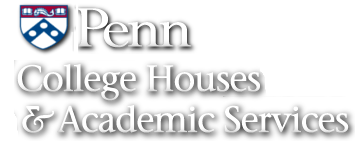Open to First-year Students
Optional Academic Credit
The Music and Social Change program explores the many ways in which individuals use music in their everyday lives to develop who they are and, often subconsciously, to advance their own social and economic position. Through an academic course, volunteering in music classrooms in West Philadelphia, and attending concerts together, participants will investigate how music is used to construct larger social and economic networks that we call culture. The ongoing interdisciplinary debate about the value of popular, Western “classical,” and transnational music in the education and everyday lives of young people will be a focus.
This residential program is special in two ways- first, it requires that residents donate 3 hours per week to volunteering in a West Philadelphia music class for the entire academic year and second, all residents take a Freshman Seminar together spread across the first-year (as a .5cu course in Fall and Spring terms). In addition, the program includes attending concerts together across Philadelphia in a wide range of genres and styles, exploring the history of West Philadelphia's educational and musical institutions, and having dinner discussions with academics whose work specializes in the ties between music, social class, race, and economic mobility.
The volunteer component of the residential program will take students either to The Workshop School to work with choir or general music classes or to Henry C. Lea Elementary School to work with an after school music program with band, orchestra, choir or homework help. In past years, participants have been able to work around their own academic schedules but our typical volunteer options are Mon-Tues-Wed between 3-6pm at the Elementary School or Fridays between noon-3pm at the High School. The program will work around students' schedules as best we can, and some students have been able to assist school-day teachers at alternate times as well.
The residential program is also supported by a very knowledgeable residential associate, who will either be a graduate student in Music or an undergraduate who has been through the course or residential program before. The residential associate lives with all participants and plays a crucial role in helping to organize concert outings, leading group activities, and providing ongoing support to students in the program.
Students in the Music and Social Change program are not required to read music or to be accomplished performing musicians, although participants must have a passion for music, an interest in working with youth in our community, and the willingness and flexibility to try new things. Participants who have musical skills and are interested in taking on leadership positions, such as more hands-on teaching, will be encouraged to do so.

 = open to first-year students
= open to first-year students  = open to upperclass students
= open to upperclass students = academic credit available
= academic credit available
 = open to first-year students
= open to first-year students  = open to upperclass students
= open to upperclass students = academic credit available
= academic credit available
 = open to first-year students
= open to first-year students  = open to upperclass students
= open to upperclass students = academic credit available
= academic credit available

 Search
Search








